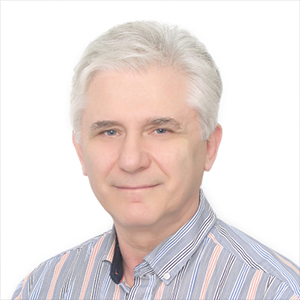
Paul Kasyanik
Paul Kasyanik, PhD is the director of the Schema Therapy Institute in St.Petersburg, Russia. He is an Advanced Certified Schema Therapist, Supervisor and Trainer in Individual, Groups and Children-Adolescents ST. Since 2016, Paul served as Science & Research Coordinator and from 2018 till 2020 as Certification Coordinator on the Executive Board of the ISST. Paul has presented advanced Schema Therapy training at EABCT and ISST Conferences and Summer Schools as well as in training programs in 18 countries.
Through the labyrinth of modes toward healthy, resilient co-therapists’ relationship in Group Schema Therapy
Co-Presented with Magdalena Kitlowska
Healthy co-therapy relationship beside the professionals being familiar with the ST model and techniques, is essential vessel to deliver successful group experience. There is little literature or training dedicated to the problem of the co-therapy and novice therapists might feel lost and confused on how to build healthy bond with each other. Unrelenting Standards, Emotional Deprivation and Self-Sacrifice schemas so typical for psychotherapists can really make co-therapy difficult in terms of creating an atmosphere of healthy honest feedback, sharing emotions- especially adult expressions of anger, supporting development and autonomy. Without those vital components of an Healthy Adult active in co-therapy relationship most fundamental role of GST (recreating a healthy family) might be compromised.
This workshop focuses on increasing awareness of own schemas and modes affecting the co-therapeutic bond and also offers ways to heal our own reactions. Successful co-therapy starts with recognizing our own triggers, schemas and expectations from the partner even before we ever face the client during pre-treatment phase of the GST.
During the workshop we would be examining typical mode clashes in co-therapy pair starting with interviewing stage of therapy, recognising loyalty and polarisation, that might come with the group work and resolving it with the benefit for the group and own development. The presenters would be discussing case vignettes and encouraging the participants to take part in exercises to maximize their learning.
Building Mastery in Group Schema Therapy: Applying Deliberate Practice to Core Interventions
Co-Presented with Rita Younan & Joan Farrell
This in-conference workshop will present the application of the deliberate practice model to three of the most challenging interventions of group schema therapy (GST): maintaining a safe space, setting limits on disruptive overcompensating modes, and managing conflict, and provide attendees with opportunities to practice these skills using the format of the deliberate practice model. Deliberate Practice is a breakthrough approach in building mastery of clinical skills. GST presents therapists with additional challenges and complexity as the needs, schemas and modes of a group of patients must be simultaneously considered and safety and connection for all must be established and contained. One of the particular challenges of GST is management of the naturally occurring stages of a group’s process described by Yalom (2019). These can be summarized as: forming, storming, and norming. In contrast to the interpersonal process model of group therapy, which allows these stages to develop in an uncontrolled manner to increase emotion, in GST the therapists either facilitate or manage the stage to provide and maintain the safety and connection required to reach and heal the Vulnerable Child mode (VCM). In the treatment of personality disorder patients allowing anxiety or other distress to increase unchecked would trigger maladaptive coping modes to appear in some group members, often derailing or creating ruptures in the safety and connection of the group. The importance of managing the storming phase and group conflict is supported by a large randomized controlled trial of GST for borderline personality disorder. In the related qualitative study, patients reported that when aggression from other members was not firmly and confidently managed by the therapists, the ruptured connections and violation of safety of the group that occurred negatively affected their ability to do Vulnerable Child mode work and often led to premature dropout.
We have observed as supervisors that setting limits is one of the more difficult skills for Schema therapists to learn and feel comfortable with. For this reason, we decided to apply the deliberate practice model to the skills of maintaining safety, limit setting, and managing conflict to allow participants to practice within the supportive structure of deliberate practice.
The majority of the workshop time will be spent practicing in triads. Using the deliberate practice model, each participant will take a turn playing the role of a client, therapist, or supervisor. Three roleplay sessions will be conducted so that participants will have a turn in each role. The participant playing the therapist will form their response based upon the criteria of the micro skill. After this brief intervention, the client will give feedback followed by the supervisor role participant’s feedback about whether the criteria of the micro-skill were met and suggestions about how to improve the response. The ideal therapist response will be read at this time and used for discussion. The therapist in the roleplay will then have a second chance to respond to the repeated client’s statement using the feedback and discussion.

